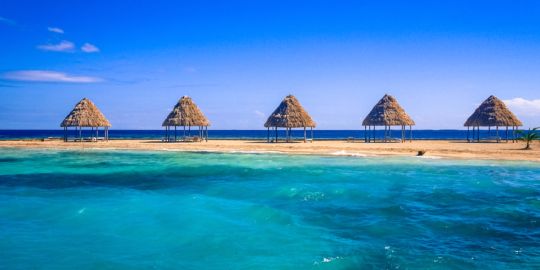Good morning all., I do hope someone here can give me some info.
I have been looking at some property on the water in Warree Bight. The lots are small
and I have had several people tell me there is a minimum lot size dictated by the government.
The realtor informed be that is is not an issue and the lots are about .20 of an acre.
Does anyone have any specific knowledge on this.
3 people that live there have said it is .35 acre minimum, and the realtor says it is not true.
Thank you
Warree Bight lots
ToddHenry wrote:Good morning all., I do hope someone here can give me some info.
I have been looking at some property on the water in Warree Bight. The lots are small
and I have had several people tell me there is a minimum lot size dictated by the government.
The realtor informed be that is is not an issue and the lots are about .20 of an acre.
Does anyone have any specific knowledge on this.
3 people that live there have said it is .35 acre minimum, and the realtor says it is not true.
Thank you
ToddHenry,
Here is a link that explains the guidelines for subdividing property. It indicates low density to be .25 acres, but, It is important to note two things.
1. It was published in 2010.
2. It is a guideline and may not necessarily be the law.
Things can change without notice in Belize. You may get responses here on the forum based on peoples belief or individual experience. But it is important to realize that often the rules are applied at the discretion of the individual enforcement official, and as a result may be applied differently in individual areas and cases.
My best advice is to contact a reputable real estate lawyer that you would use to close the deal rather than take the word of the Real Estate agent. Buyer Beware is aptly applied on Belize. You may find that you have little recourse if down the road there is a problem.
Here is the link http://www.pcsdbelize.org/Subdivison%20 … 495927.pdf
Good Luck, I hope this helps.
Thank you. This is a great start
ToddHenry wrote:Thank you. This is a great start
ToddHenry;
After reading the document a bit closer, although it is titled a guideline the word "requirements" is used quite often. Page 8 indicates that the size of lots is dependent on the areas designation with regards to low, medium, or high density building designations. I am not sure if you are aware but it is also important to factor in location to sea and some rivers. It is usually not permitted to have title within 66 ft. (some exceptions of course). With regards to this particular lot, maybe better than a real estate lawyer would be to inquire at the appropriate local building authority and get documentation from them.
It appears the above document is not the final work.
Using this string in a Google search brings up several links to similar later documents from various sources both government and non-government. "final Draft National Guidelines for Subdivision and Consolidation of Land in Belize"
Also note the above document was from (www.pcsdbelize.org) that describe themselves thusly:
"The Peninsula Citizens for Sustainable Development (PCSD) was formed in 2006 by concerned residents from all communities on the Placencia Peninsula in southern Belize - Maya Beach, Seine Bight and Placencia"
Good Morning, would you care to buy an already established farm in Warren Bight? You may want to Contact Carol Burin, in Progresso , Belize. I believe you can contact her on fb. Good luck, and buy a case of mosquitoe repellent.
ToddHenry wrote:Thank you. This is a great start
I have sent you a private message with a contact in Warree Bight that will probably be able to answer your questions.
Actually interested in oceanfront property! And Roger on that mosquito issue I got chewed up last time
Thank you
Why do you want to buy a lot?
Whenever I see someone asking about buying property, my first question is always, is that the right decision for the person to begin with? It's easy to assume that they know what they are doing but in my experience of living in various countries, often it may not be the case. I'm not saying you don't know what you are doing but I am saying, no one here knows if you know what you are doing or not. No insult intended.
So you are asking a specific question about lot size but have said nothing about why you want to buy a lot at all. For example, a lot to build a house on is not the same as a lot to build a commercial premises on obviously. Someone who wants to build a winter vacation home to spend 3 months a year in, is not the same as someone who wants to retire permanently or start a business.
Asking a specific question in isolation may get you answers to that question but it may not be the question you should have first asked, which might be, 'should I buy a lot'? That depends on what it is you plan to do.
You can assume you have made the right decision in that regard or you can include information on what you plan to do if you buy a lot and see if it changes the answers you get.
For example, if someone was planning to retire next year and had decided to buy a lot and build a retirement home to move into, my advice would be to not do that at all. It's always better to live in a place for a couple of years to see if you will 'stick' and so it makes more sense to rent initially. Yet, many retirees make the mistake of buying right away and live to regret it. They might ask, 'is this lot size big enough' without having first asked, 'is my basic plan a good plan?'
I have seen people buy a property to start a business, only to discover they should never have bought in that particular location for that type of business or some other reason they were not aware of but if they had asked would have been told of quite quickly.
I don't like to assume or see others assuming the first questions have been dealt with. So if I may ask, why do you want to buy a lot?
Fantastic point!
I have been going back and forth every month since August and I am building a house to retire there. Actually, about 50% of the time! I'll be spending two weeks there and then two weeks in the states for a while to keep my business efforts in the States going the way they need to go. So I hope that answers your question but you did have a valid point.
I'm glad you took it in the way it was intended ToddHenry. Sometimes people don't as you might imagine.
I retired relatively early (early 40s) and have spent 27 years since then living in several different countries. I've met a lot of retirees in those countries over the years. While I can only give you anecdotal evidence based on my own observations vs. an actual statistically valid study, I think it is worth sharing what I have observed. Unfortunately, although I have Googled the issue of 'how many retirees to another country 'stick' vs. return home', in as many ways of trying to find some statistical answers to that question as I can, I haven't been able to find any such evidence. So that leaves on anecdotal evidence.
For every 10 people I have seen move to their 'retirement paradise', I would say that 5 of them were gone within 2 years and only 1-2 out of 10 were still there after 5 years. That to me does not inspire confidence in the chances of any individual 'sticking'.
The most common reason I have seen for people leaving is simply an inability to deal with 'different'. Almost anywhere can be great when we are on a vacation. But when you live somewhere and have to deal with all the ordinary day to day things we deal with, different can be an issue for many people.
For example, bureaucracy anywhere is a pain in the butt but I discovered when living in Greece that it can be raised almost to an art form. Dealing with something in Canada where I grew up might take a couple of visits to a Government office. Dealing with the same kind of issue in Greece could take literally dozens of visits. Some people can accept that and adapt to it. Others cannot and become extremely annoyed and frustrated at how 'terrible they are at getting things done here'.
For whatever reason people decide it isn't for them, many pack up and go. That has some interesting ramifications. A major one is the selling of the house they bought. It's easy to buy, it's not always as easy to sell.
When people buy in a place where 'expats' are common, the locals are well aware of how many end up leaving. They also know that when someone decides they've 'had enough' and want to leave, they really want to leave. They're somewhat desperate to leave at that point in many cases. So guess what happens to offers on their house. They get low offers unless they are willing to wait until some new arrival with dreams of their retirement paradise arrives and is willing to pay them what they are asking.
Of all the people I have seen arrive in their 'retirement paradise', not ONE left with more money than they arrived with and most left with considerably less.
You say you 'are building', so there is little point perhaps in my sharing this info with you at this point. However, I've wrote it anyway as in a forum, other readers may read it in time to give it thought.
My advice to anyone retiring to their 'retirement paradise' is always the same. RENT, RENT, RENT for at least 1 and preferably 2 years before buying anything. It takes that long to get past the 'rose coloured glasses' phase and have some basis on which to consider whether you are likely to 'stick' or not.
Thank you very much for all of your input. It is greatly appreciated! I will keep your words in mind as I move forward. What part of Belize are you in?








